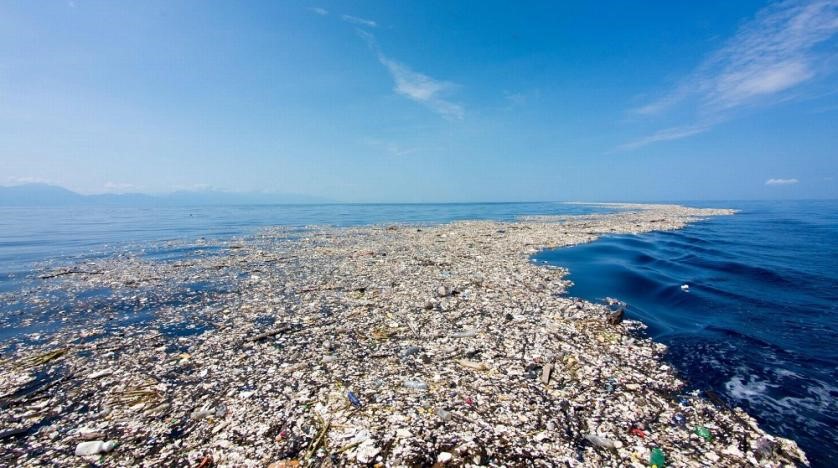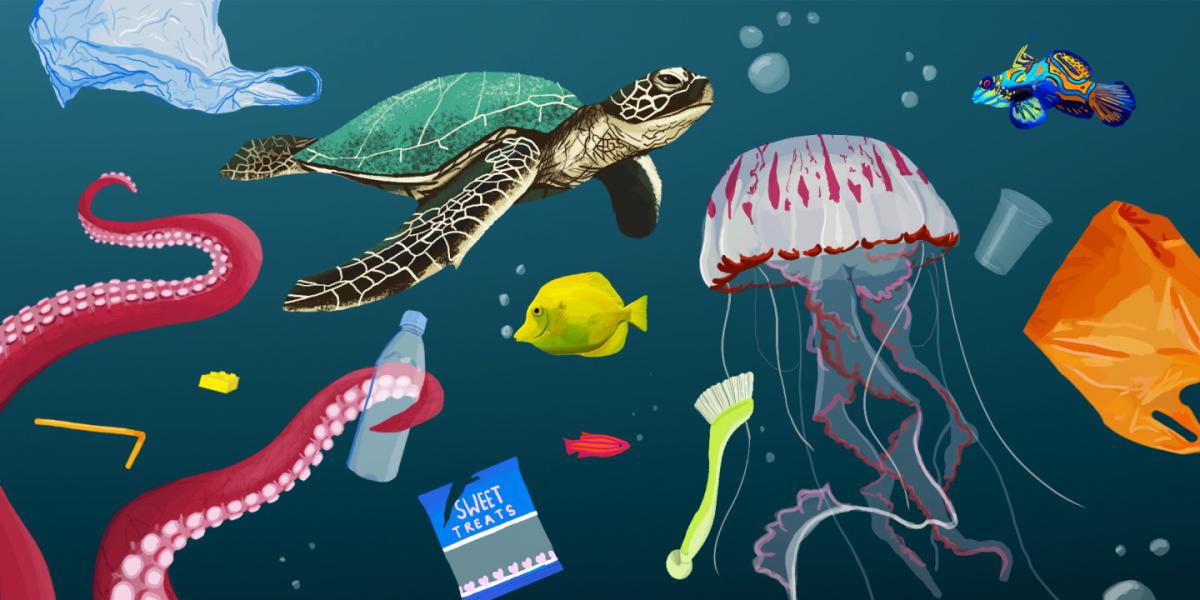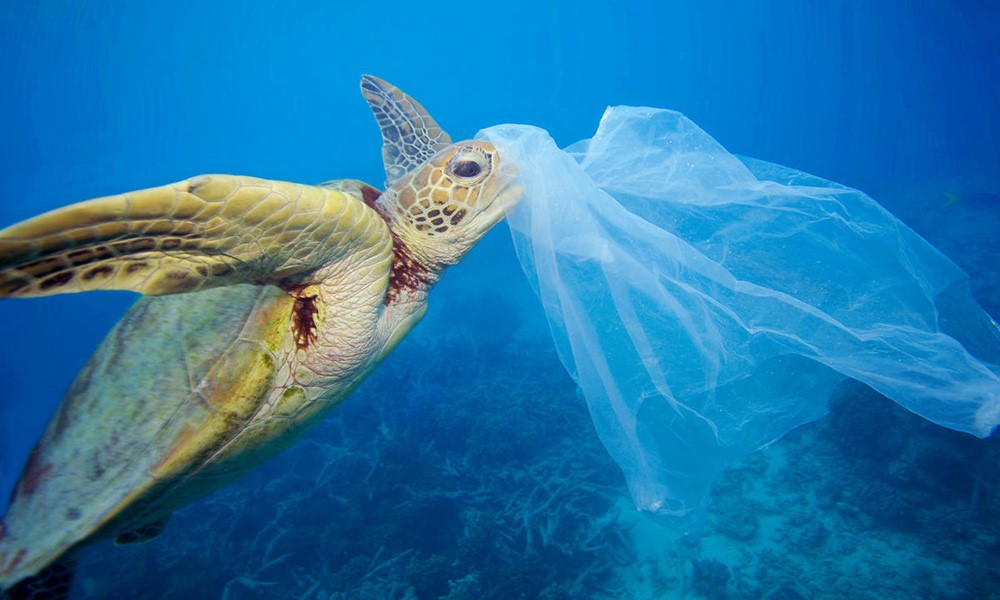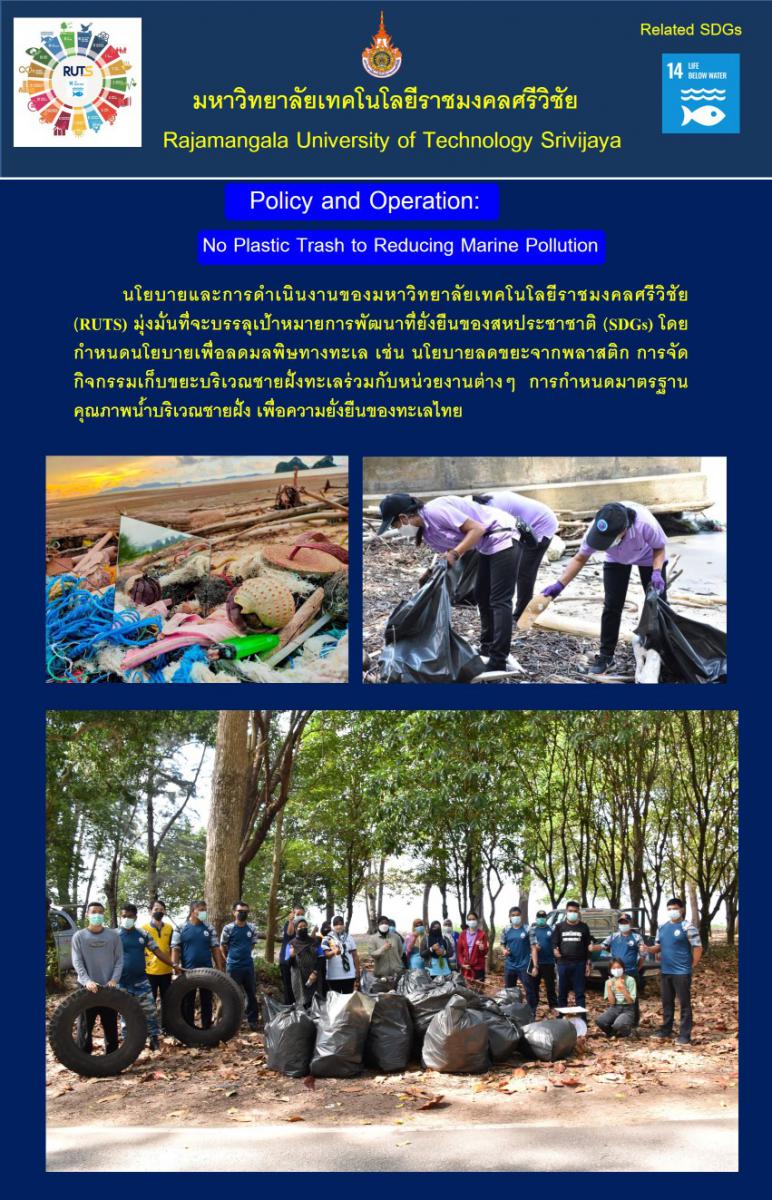Policy and Operation
No Plastic Trash to Reducing Marine Pollution
Content Creator: Dr. Chanyut Sudtongkong
|
Every year, over 300 million tons of plastic are produced for use in a variety of applications. At least 14 million tons of plastic end up in the ocean. 80% of all marine debris is plastic which can be found from surface waters to deep-sea sediments. Urban and inadequate waste disposal and management, industrial activity, construction, and illegal dumping are the main causes of plastic debris detected in the ocean.
Plastic pollution is a widespread problem that has a negative impact on the marine environment. It endangers ocean health, marine species' health, food safety and quality, human health, and coastal tourism, as well as contributing to climate change.
Marine wildlife such as seabirds, whales, fish and turtles mistake plastic waste for prey; most then die of starvation as their stomachs become filled with plastic. They also suffer from lacerations, infections, reduced ability to swim, and internal injuries.
Rajamangala University of Technology Srivijaya (RUTS) is committed to achieving the United Nations' Sustainable Development Goals (SDGs) via our policies and operations. RUTS has the policy, action plans, and activities to reduce marine pollution. RUTS activities to reduce plastic trash and marine debris are usually conducted by students, faculty staffs, and a variety of partners.
Related Links:
https://www.facebook.com/MarineSciRmutsv/photos/pcb.3126327387626067/3126326100959529 http://trang.rmutsv.ac.th/trang/th/news/2259-1631953062-576-180921 https://www.iucn.org/resources/issues-briefs/marine-plastic-pollution
March 14,2022
|
|





